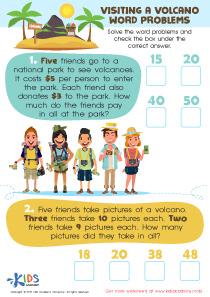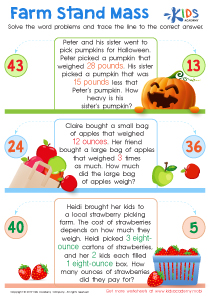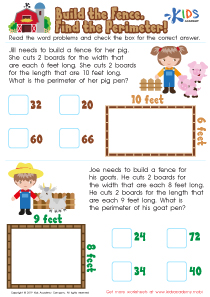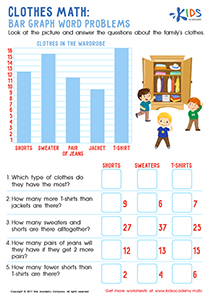Basic Arithmetic Normal Addition and Subtraction Word Problems Worksheets for Ages 7-8
4 filtered results
-
From - To
Discover engaging and educational Basic Arithmetic Normal Addition and Subtraction Word Problems Worksheets designed specifically for ages 7-8. These worksheets provide a fun and interactive way for children to practice their arithmetic skills through relatable scenarios, enhancing their problem-solving abilities. Each worksheet features age-appropriate challenges that encourage critical thinking while reinforcing the essential concepts of addition and subtraction. Perfect for classroom use or home learning, these printable resources can help kids build confidence in mathematics as they navigate various real-life situations. Foster a love for learning and improve your child's math proficiency with our comprehensive collection of word problem worksheets today!
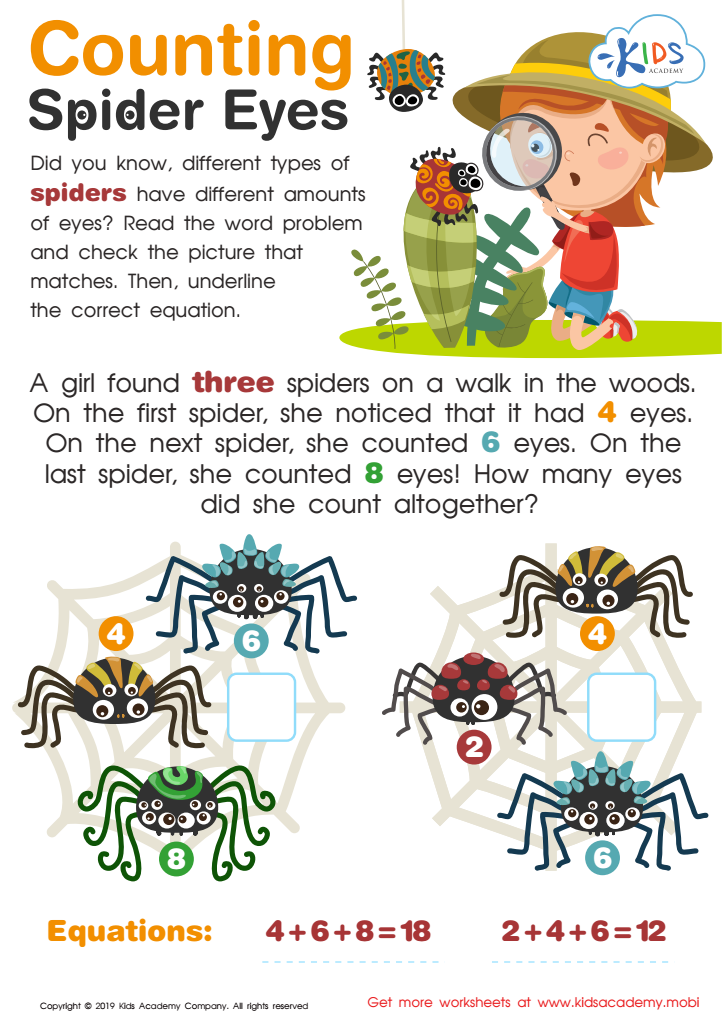

Counting Spider Eyes Worksheet
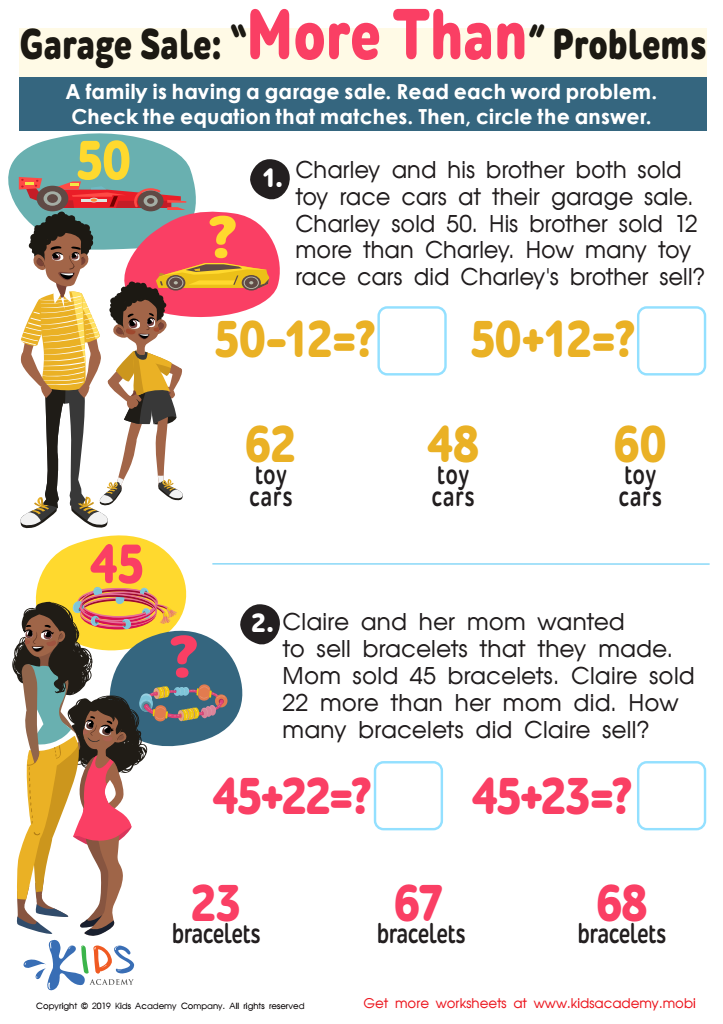

Garage Sale - More yhan Worksheet


Solve the Problem: Trick–or–treating Worksheet
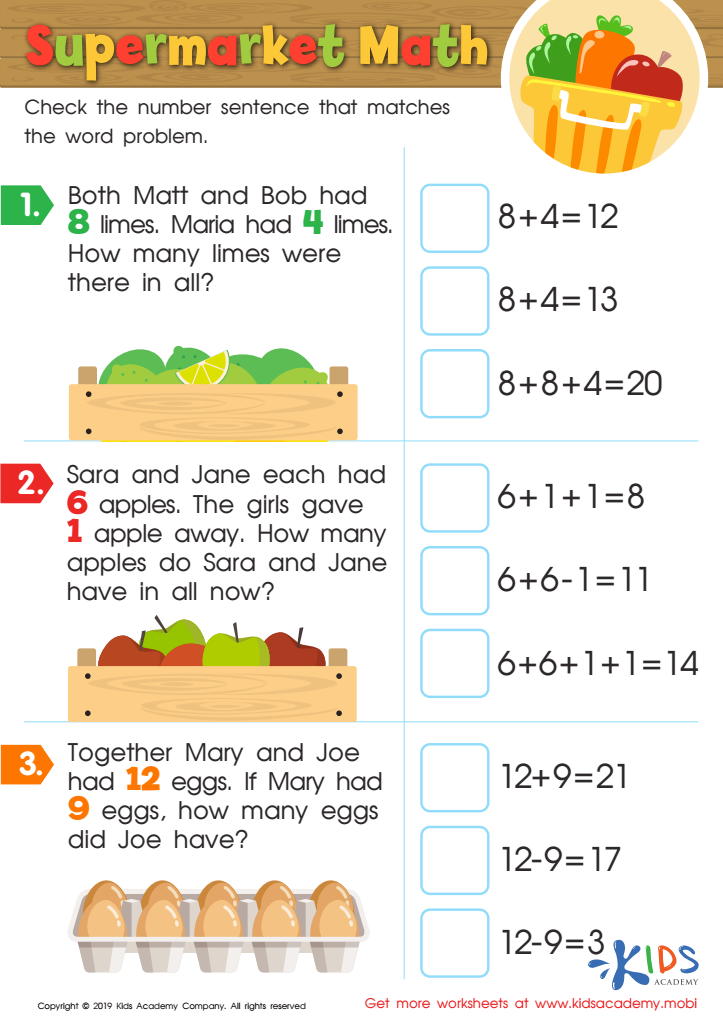

Supermarket Math Worksheet
Parents and teachers play a crucial role in fostering mathematical skills in children aged 7-8, particularly in mastering basic arithmetic through normal addition and subtraction word problems. This age group is pivotal for building a strong foundation in math, as children begin to transition from concrete understanding to more abstract problem-solving.
Word problems, as practical applications of arithmetic, help children develop critical thinking and comprehension skills. They require students to interpret and translate real-life situations into mathematical equations, thereby enhancing their ability to apply math in daily scenarios. Understanding these concepts fosters logical reasoning and lays the groundwork for more complex mathematical operations they will encounter in later grades.
Moreover, engaging with math word problems cultivates resilience, as children learn to tackle challenges and make sense of their solutions. Parents and teachers should also note that positive experiences with math can boost a child's confidence and enthusiasm for learning, reducing math anxiety in the future.
Ultimately, incorporating basic arithmetic word problems into learning empowers children with valuable skills that transcend the classroom, preparing them for future academic success and equipping them for effective problem-solving in everyday life. Thus, it's essential for adults to prioritize this area of learning.
 Assign to My Students
Assign to My Students








